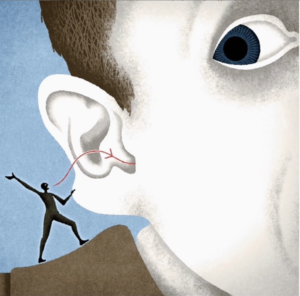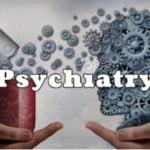The simple truth is this: someone will always step in to fill the void. In both study and practice, psychiatry and psychology have failed to properly support the need for mental health. This leaves us vulnerable to the ‘quick-fixers’.

We find ourselves deluged with mental health hacks; online solutions from a vast array of sources from high-level academic practitioners to business people looking to make money by addressing our demand for relief.
@JesseSingal, in his New York Times editorial on 6/10/21, describe this phenomenon as “Primeworld”: a worldview in which complex problems are remedied by singularly tweaking individuals with the ‘latest and greatest’ psychological interventions.
Among the panaceas for a good life, Singal mentions prominent neuroscientist Carol Dweck who espouses the Growth Mindset. With even a cursory review it’s clear that her studies have not been replicable. She is just one among many psychologists touting easily digestible nuggets with big claims, usually bolstered by social media and TEDTalks and fueled by advertising revenue or book sales.
However, Primeworld goes well past psychologists into other areas. Today we see groups promoting psychotropic medications to treat depression based upon a long since refuted monoamine hypothesis. We see ‘experts’ with simple tests to determine whether school-age children should be put on stimulants for life for ADHD. We see too many well-meaning practitioners falling into the same trap of simplistic, reductionist ’solutions’ that are gobbled up by a hungry public.
Neuroscientists who implicitly claim that tweaks to the nervous system are all that’s required to change mental health are now another popular group. In fact, anyone promoting a brain changing supplement, nootropic, or practice as a cure for anything falls into Primeworld.
It is not that these measures don’t help. They clearly do, and some very strongly. When we look beyond the big claims and often unwarranted hype, they present a very real danger to the public by neglecting deeper and more complex factors that are embedded in systems and not easily remedied by singular approaches or interventions. Do people struggling with difficult brain and body challenges need ‘one more failed attempt’ at relief?
These quick fixes allow us to ignore root causes, including childhood traumas, sociocultural factors, and relational influences on mental health. When the causes are ignored, and we treat symptoms alone, they will find other ways to surface. And sometimes, far more dangerous ways. These underlying causes and the physiology of the body altogether, comprise the mind. It is too complex to offer tweaks that are going to profit the individual, but ignore the deeper needs of the patient.
So, for short term distraction, mild relief or even entertainment, go ahead with the easy solutions if they interest you. But don’t believe they are anything other than a tool for procrastinating the real work we must do to heal our wounds and build health on a solid foundation.
My advice to you? Dig deeper. Let’s get to the real work. That’s where we’ll find our joy.



